10 Effective Ideas for a Race Day Breakfast
- January 10, 2022
- Last Updated: April 9, 2024
- 0 Comments
- Running
Struggling with what to eat for breakfast on race day? This post has 5 ideas for different race day breakfast ideas before a morning race and will explain how to modify them to fit your needs.
As an Amazon Associate, I may earn from qualifying purchases. You can read more here on our Disclaimer and Privacy Page.
If you’ve stumbled on this post, then you’ve probably wondered, should I eat before running in the morning?
The answer is yes (most of the time), especially if you’re planning on running long or competing in a race.
Knowing what to eat for breakfast on race day, or what to eat the morning of a marathon is a big challenge.
Eating before a morning run can be troublesome for some people, due to nerves, digestion, time and more.

But, we have several suggestions for a race day breakfast whether you’re short on time or need a lower fiber option.
If you aren’t eating the “correct” foods, or eating enough or too much, you may suffer from runners gut, or have adverse symptoms during your run.
Of course, what you eat the morning before a race matters! If you have specific dietary preferences or allergies (ie – gluten free, vegan, dairy-free, etc.), it is helpful to meet with a sports dietitian to tailor a plan to your unique needs.
Benefits of Race Day Breakfast
There are several benefits to eating before a morning run and enjoying a race day breakfast.
Everyone will have individual preferences, and how much to eat and when you eat may vary depending on the race distance, whether it’s a half or full marathon race, whether you’re an elite runner or not, etc.
There can be many variables! Either way, here are some of the benefits of a breakfast for runners on race day.
- Carbohydrates provide quick and sustained energy to use in that run
- Eating can enhance glycogen storage (that can benefit you during those longer races and efforts)
- Prevent low blood glucose and blood sugar drops
- Prevent feelings of physical hunger during a run
- Enhance performance, especially during long distances or time on feet over 3-4 hours
- Energy for the brain and cognitive function
- Avoid an empty stomach, which can sometimes propagate runners gut/digestive symptoms
- Help provide adequate energy to make up for expended energy to avoid relative energy deficiency (RED-S)
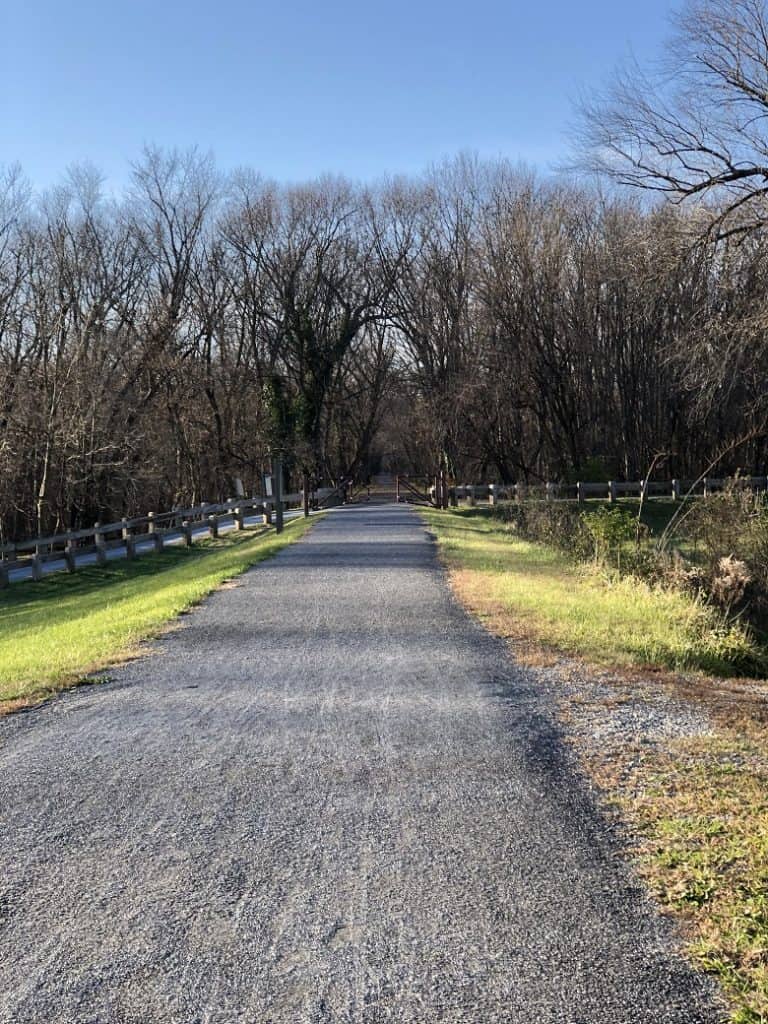
What Should I Eat Before a Race?
Now that you know some of the benefits to having breakfast on race day, let’s talk about what that should actually look like for you.
Before racing in the morning, you should eat something with mostly carbohydrates and a little protein.
How much to eat will depend on how hungry you are, how much time you have to digest food, and how long you are running or racing.
If you are going for a run under 45-60 minutes (a 5k or 10k), you may not need to eat anything.
However, you may feel better if you eat something, even if it’s something small, like a gel, chew or sports drink, before you toe the start line.
Here are some of our favorite chews for running.
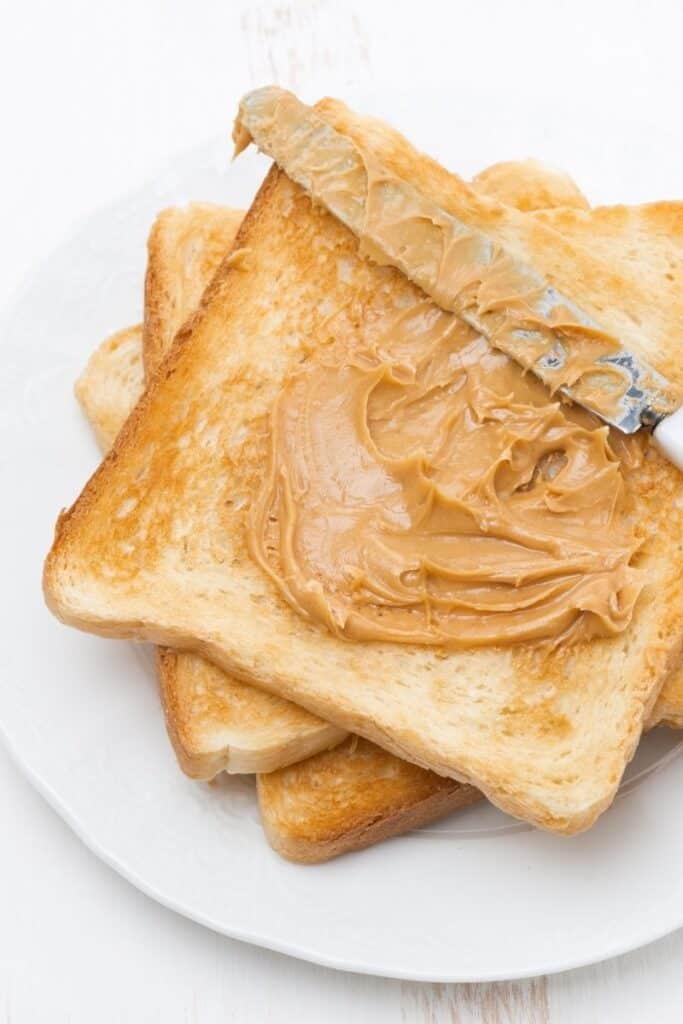
Spreading just a little peanut butter, almond butter or butter can add a little more “staying power” to your pre-run meal or snack and may work well for some, but may cause GI distress for others.
This is something to test before race day.
Examples of Carbohydrate Foods
Carbohydrates will be your main energy source.
For your pre-race meal, aim for 15-30 grams of carbohydrates to start. You can always go up from there once you know you can tolerate it.
This can look like:
- a piece of white bread, English muffin or half a bagel with nut butter
- a banana
- 1/2 cup oatmeal
- energy bars (though make sure they aren’t too high in protein or fiber
- a glass of juice or sports drink
- a couple of handfuls of cereal or granola
- half of a fig newton bar
- running gel or chew
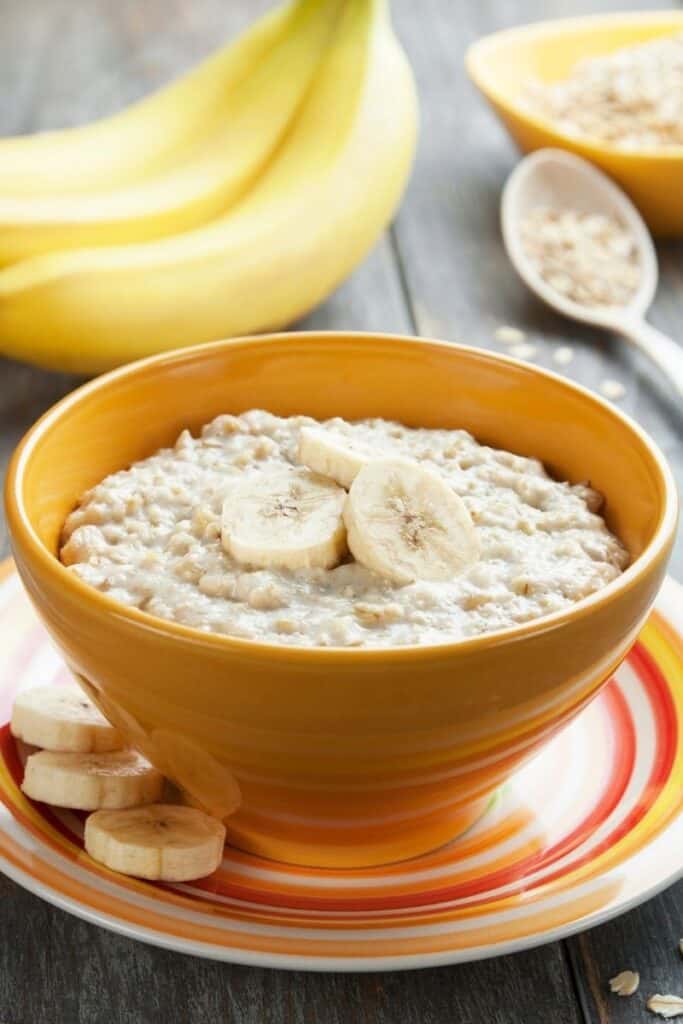
I generally recommend 60 grams and up of carbs before a longer race.
That may look like a bagel with juice, or toast with a banana and fruit, or 3/4 cup oatmeal with a banana or some milk/yogurt.
Here are some more examples of what to eat before running in the morning.
How Many Carbohydrates Do I Need?
If you need some more guidance on carbohydrates for race day breakfast, we can estimate based on your weight (1-4 grams of carbohydrates per kg of body weight) and how much time you have.
For example:
- 1 hour before running = 1 g of carbs/kg of body weight
- 2 hours before running = 2 g of carbs/kg of body weight
- 3 hours before running = 3 g of carbs/kg of body weight
- 4 hours before running = 4 g of carbs/kg of body weight
So, if your race is in two hours, and you weigh 60 kg, then your goal would be 120 grams of carbs.
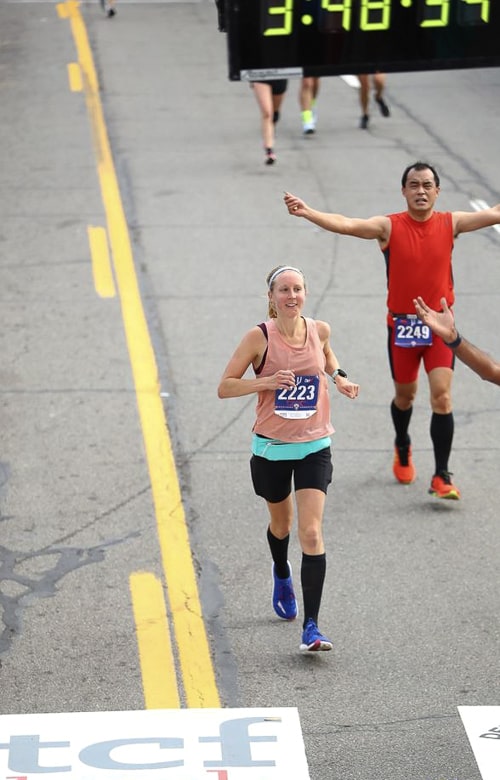
Now, there is some wiggle room in there, especially if you have been carb loading ahead of time, you ate enough last night, you plan on eating more during the race, etc.
We also make carbohydrate recommendations based on time.
For example, if you are competing in a longer race, like a half marathon or marathon, or you plan on running over an hour, you should aim to increase to 30-60 grams of carbohydrates before racing, and then 30-60 grams of carbs for each hour of exercise.

If you’ve gotten up extra early for your race and to eat a pre-race breakfast, you may also want to “top” off your glycogen stores with a carb-rich snack shortly before the race.
This can be a great opportunity to provide a quick burst of simple carbohydrates that you’ll use early on to help power you through the first hour of running so you don’t have to dig into your glycogen stores early. This can also help with avoiding hitting the wall in a marathon.
An energy gel (I love huma gels), clif blocks, a sports drink, fruit bars or crackers can be great for this.
You also want to make sure you’re taking in about 8 ounces of water alongside 20-30 minutes before the race
The main takeaway is that carbs are king – you should never follow a low carb diet for running if you’re looking to run a high intensity, PR or race pace.
Protein and Fat
When you are just starting to test out options for your pre-race breakfast, you want to first and foremost focus on carbohydrates.
Excess protein and fat can lead to GI troubles if you have a sensitive stomach, and they don’t give you the energy that carbohydrates do.
However, adding small amounts of protein may be beneficial for taste and staying power.
Here are some options to try:
- peanut butter on toast or yogurt
- low-fat yogurt with cereal
- eggs with toast or in a tortilla
Hydration
When putting your pre-race breakfast together, don’t forget about hydration.
Recommendations are to drink 8 ounces 15-30 minutes before running, and 16 ounces a few hours before.
We’ve broken down hydration tips for summer running as well as tips for your winter hydration plan, too.

There are several electrolyte drinks and options that you can use for hydration, including homemade electrolyte drinks.
My personal favorites are the UCAN packets and of course, Skratch, NUUN tabs or GU tabs.
I like both NUUN and GU tabs because they are palatable and I can drink them throughout the day (especially warm days) without stress.
Finally, if you’re a salty sweater, it’s also probably a good idea to consider a salt tablet either instead of regular electrolyte enhancements or in addition to.
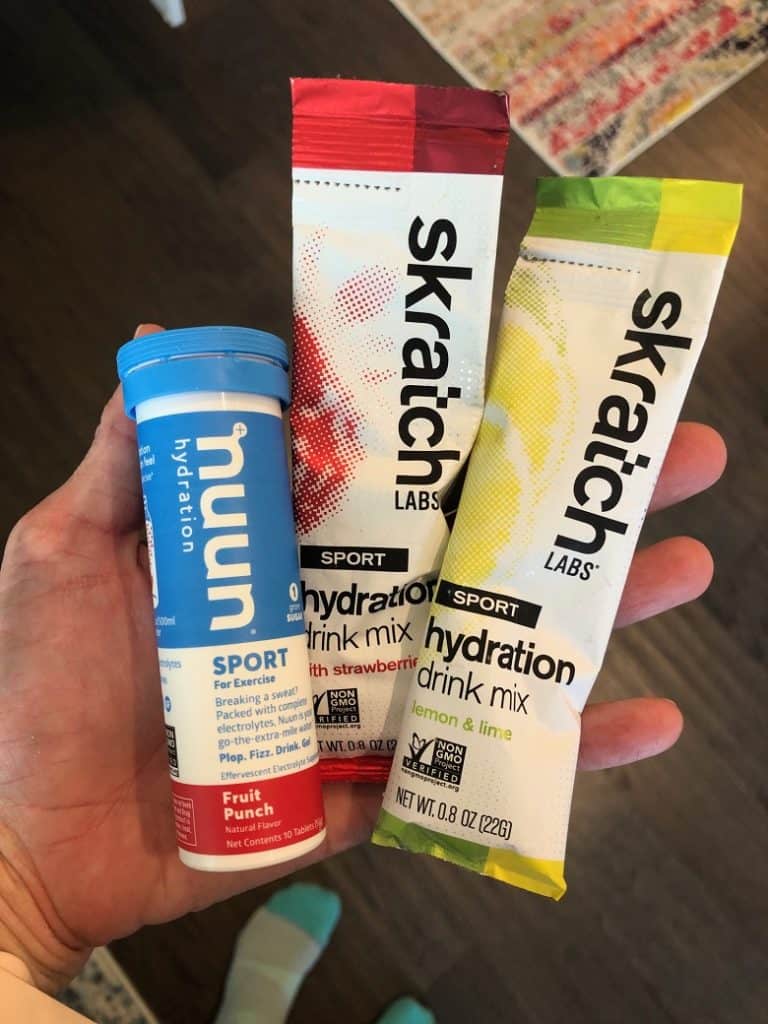
These salt tablets are pretty much the best salt tabs for runners that I’ve found.
The Right Stuff is also NSF-certified for sport, which means it has been third party tested and verifies that what’s on the label actually matches the content.
Compared to a bottle of Gatorade which has 280 mg of sodium, The Right Stuff has 1780 mg of sodium! It’s best to figure out your plan with your sports nutritionist.
Race Day Breakfast Ideas
As previously discussed, you’ll want to eat a combination of carbohydrates and protein for your breakfast on race day.
It’s very similar to practicing what you eat before a long run.
What you eat in the morning before a race should fuel you well through the first hour of your race, so it counts!
Subsequently, the success of the race will then come down to fueling after the first hour and ultimately, fueling for the marathon.
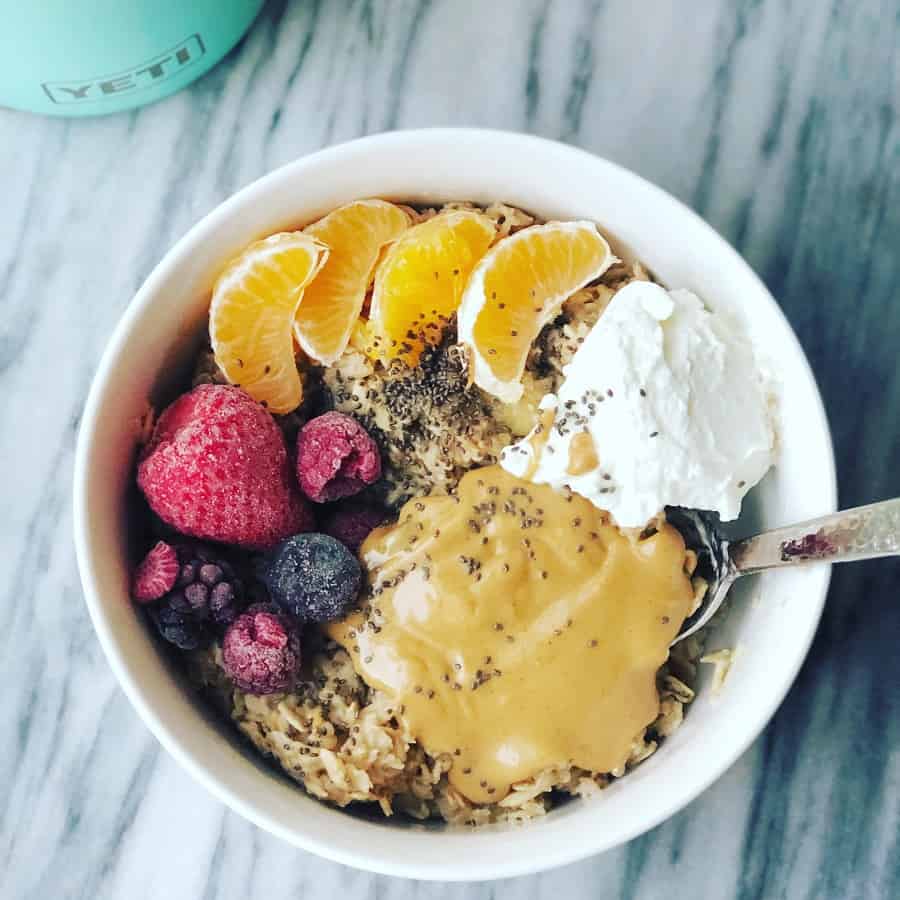
For more ideas about marathon nutrition needs, you can read more about in this marathon race day nutrition post.
Figuring out a breakfast for runners on race day should be easy if you’ve trained properly and practiced eating before your morning runs.
Many of our clients have realized that eating more does sustain them for longer and help their legs feel fresher and able to maintain a harder pace for longer.
Again, eating before a race is very individual and should be practiced before your long runs!
Race Day Breakfast Ideas
For those of you who want recipes for a race day breakfast and wondering specifically what to eat the morning of a race, here are some ideas you can try.
Make this easy banana bread with chia seeds for a tasty breakfast or on-the-go snack. Made with fruit, chia seeds, oat flour and half the sugar, it's a wholesome, healthy chia seed bread for all.
A hearty, flavorful breakfast bake, full of satiating fiber and complex carbohydrates. This Banana Peach Steel Cut Baked Oatmeal is perfect for a fall breakfast or snack. It can easily be reheated for on the go snack and topped with your desired topping choices.
Banana chia pudding is like a healthy banana pudding in a glass, filled with nourishing ingredients like bananas, chia seeds, milk and shredded coconut.
This Strawberry Baked Oatmeal is a healthy summer oatmeal staple. This meal prep oatmeal is great for saving time, and you've never tasted a baked oatmeal with strawberries like it before!
This Sweet Potato Oatmeal Bake with Blueberries is the perfect quick and nutritious breakfast option, great for your meal prep oatmeal needs. It’s ready in 30 minutes, great for crowds, and the perfect pre- workout snack!
This Mushroom and Asparagus Quiche is a convenient and easy veggie quiche, full of protein, nutrients and vegetables, for a delicious meal any time of day!
This savory Sweet Potato Breakfast Scramble is a perfect quick and savory breakfast option. It's ready in 20 minutes, full of nourishing veggies, can be made in bulk, and is great for those busy mornings!
This Turkey Sausage Breakfast Casserole is an easy make ahead breakfast that you just pop in the oven in the morning! Enjoy this turkey sausage sweet potato egg casserole after a morning workout, for meal prep or with your favorite people!
These vegan peanut butter chia balls are the perfect, kid-friendly on the go snack! Full of flavor, fiber and a hint of sweetness, these peanut butter protein balls are nutritious, easy and delicious!
Cherry overnight oats with blueberries epitomize an easy, done-for-you breakfast! Full of protein, fiber and antioxidants, this meal prep breakfast is full of nutrition and cherry flavor.
What if I Have Stomach Issues When Running?
We recognize that the above ideas may not work for everyone. Some people may be better suited to liquid nutrition, like a smoothie, or just frozen waffles with peanut butter and syrup.
The above recipes are just ideas for you! And if those don’t work or you have stomach issues to troubleshoot, try these tips.
- Give yourself time to digest – On the morning of a race, you do want to give yourself a few hours to digest before the race, especially if you have a sensitive digestive system. This way you can plan to eat adequate carbohydrates. This can even look like splitting higher carbohydrate needs into smaller portions of time. For example, eating 40-60 grams of carbohydrates 2.5-3 hours before the race, and then adding 15-30 grams 30-45 minutes before race time.
- Eat something low residue – Even if you’re someone who doesn’t like to eat early or run with something in your stomach, it will benefit you to eat something for those longer distance races. In fact, having nothing in your stomach could exacerbate the runner’s gut symptoms.
Instead, choose simple carbohydrates that are low in fiber.
Some switches could be:
- white toast instead of whole wheat
- stroop waffle instead of whole grain waffle
- low fiber cereal
- white rice instead of brown rice
- juice or a liquid nutrition option – I recommend UCAN, Skratch or Tailwind

Should You Drink Caffeine Before a Race?
Caffeine before running can provide some performance benefits if taken in the correct dosing.
Research studies conclude that 3-6mg/kg body weight of caffeine ingested 60 minutes before a workout is recommended.
For more information, I’ll point you towards this extensive post on whether coffee before running is recommended.
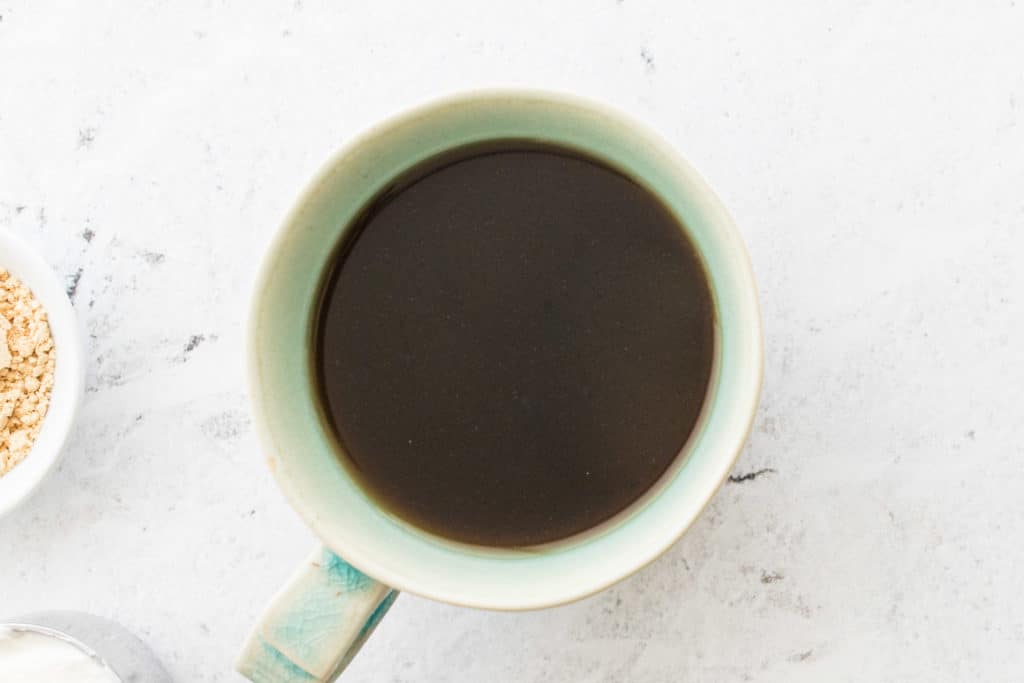
You may enjoy some of these other running posts!
Support Bucket List Tummy


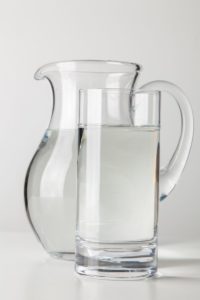
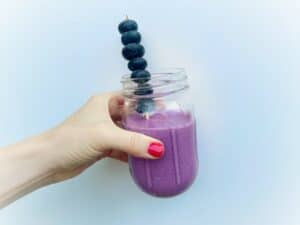

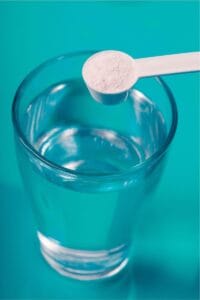

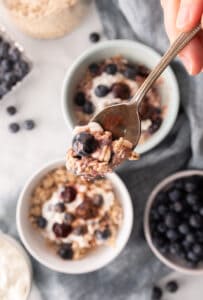
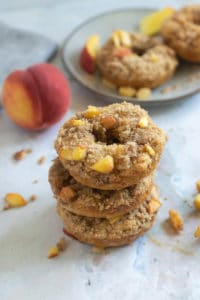
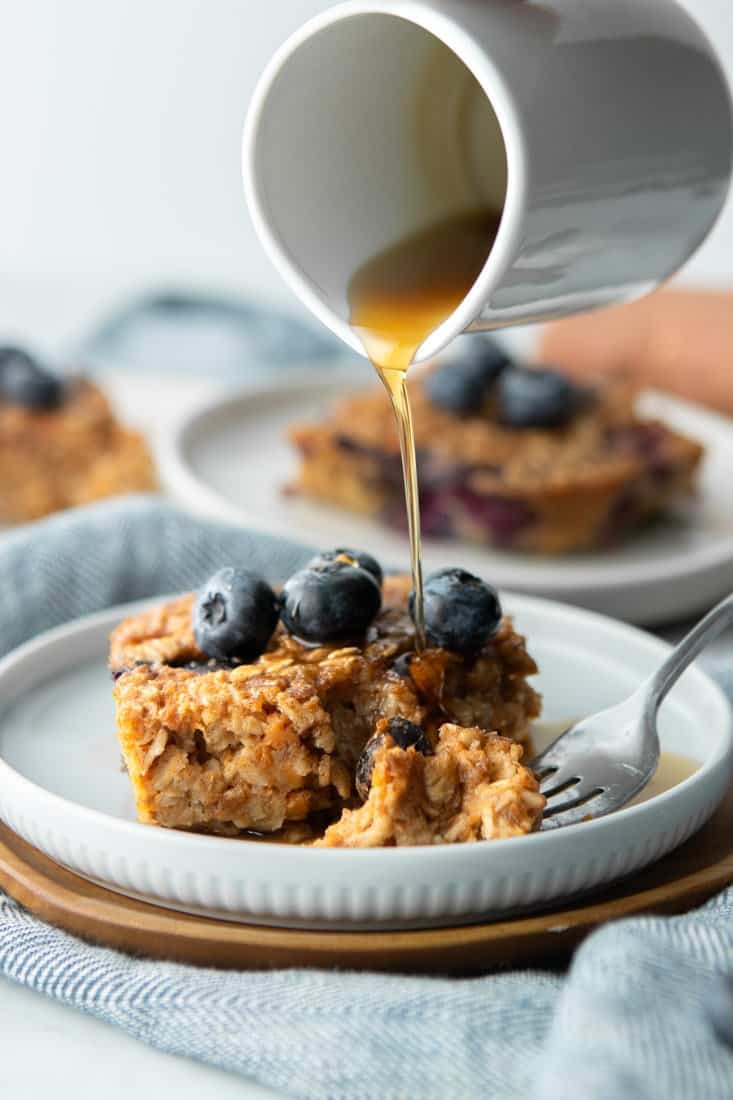
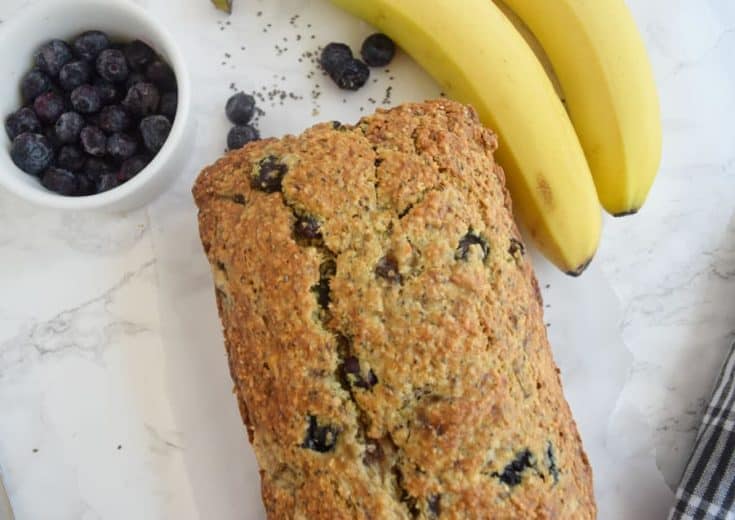
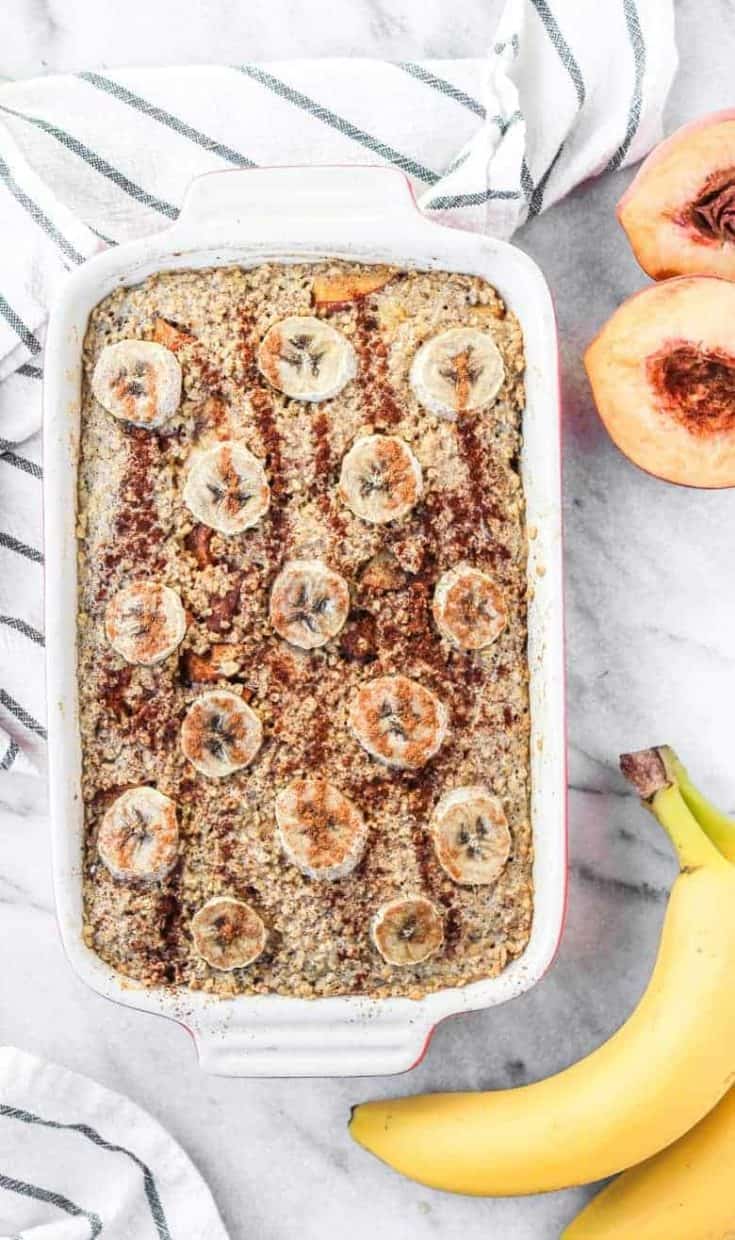
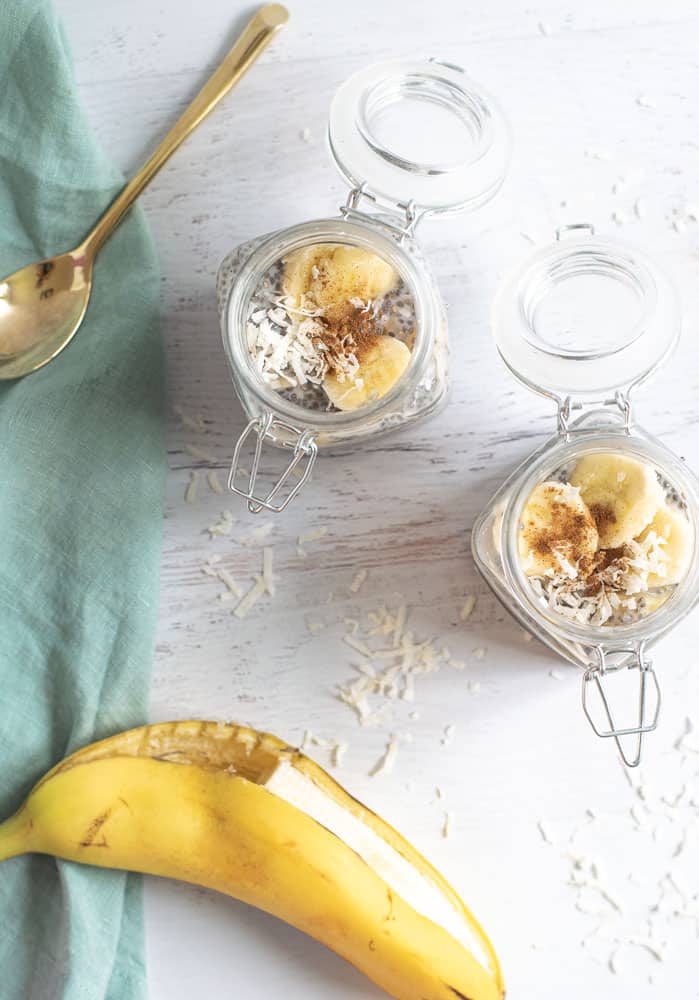
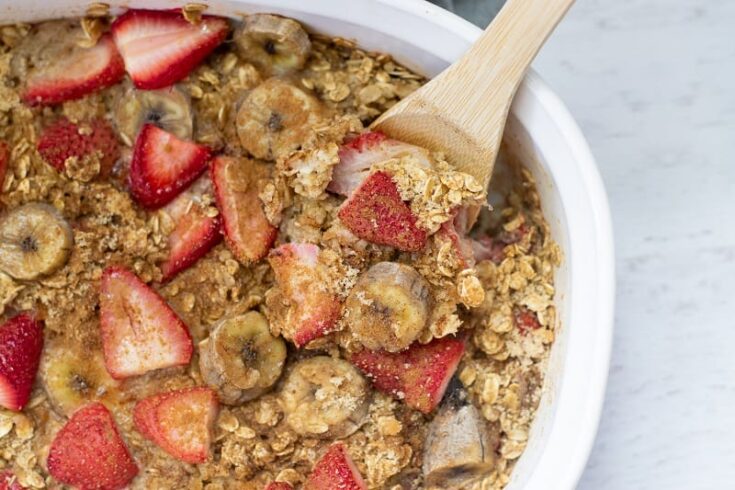
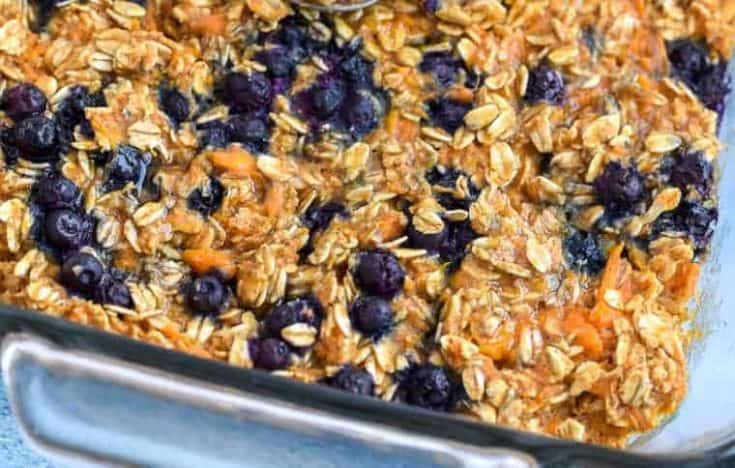

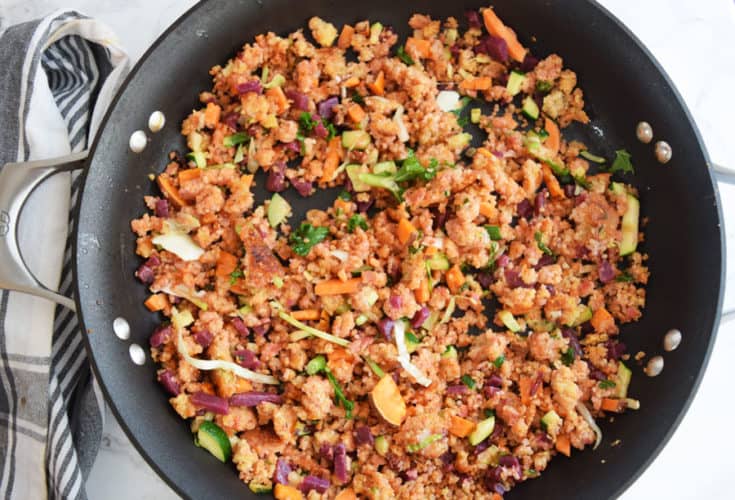
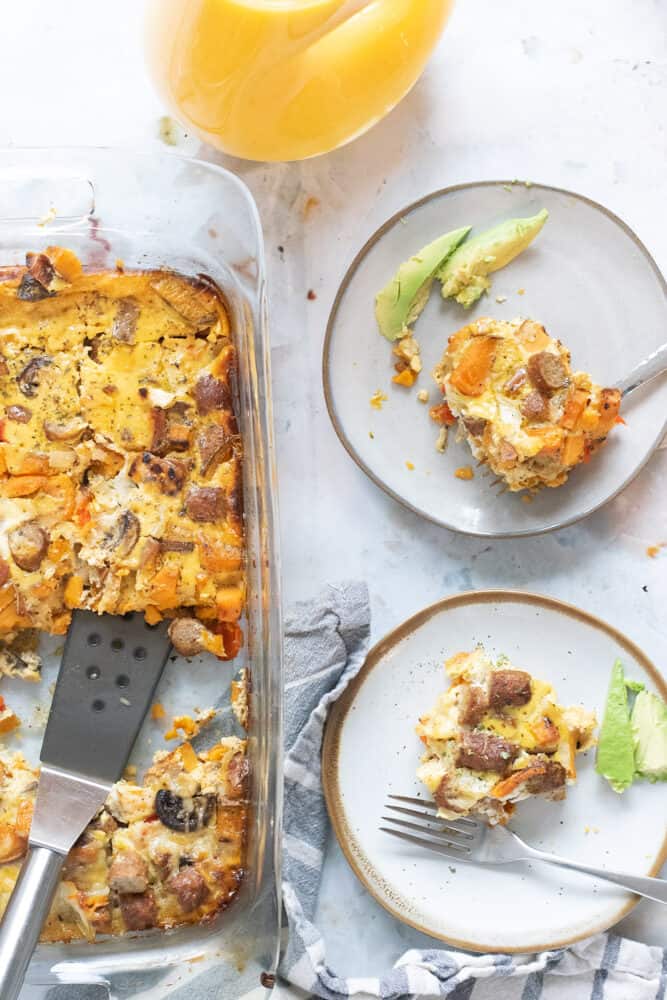
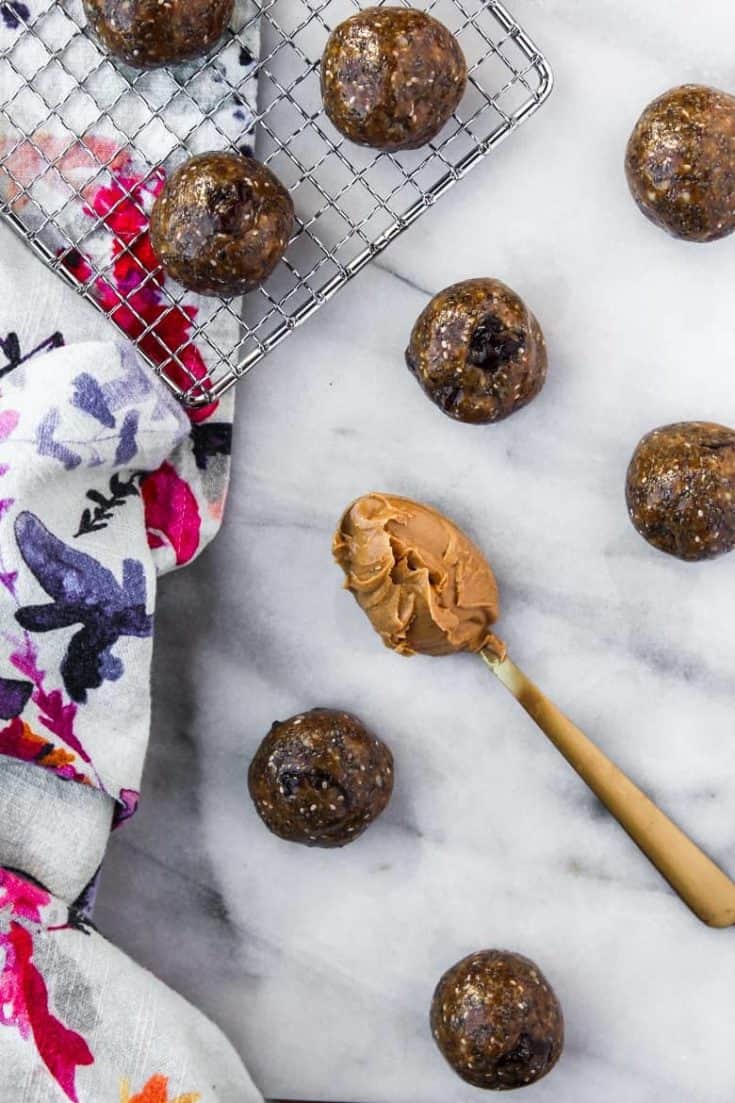
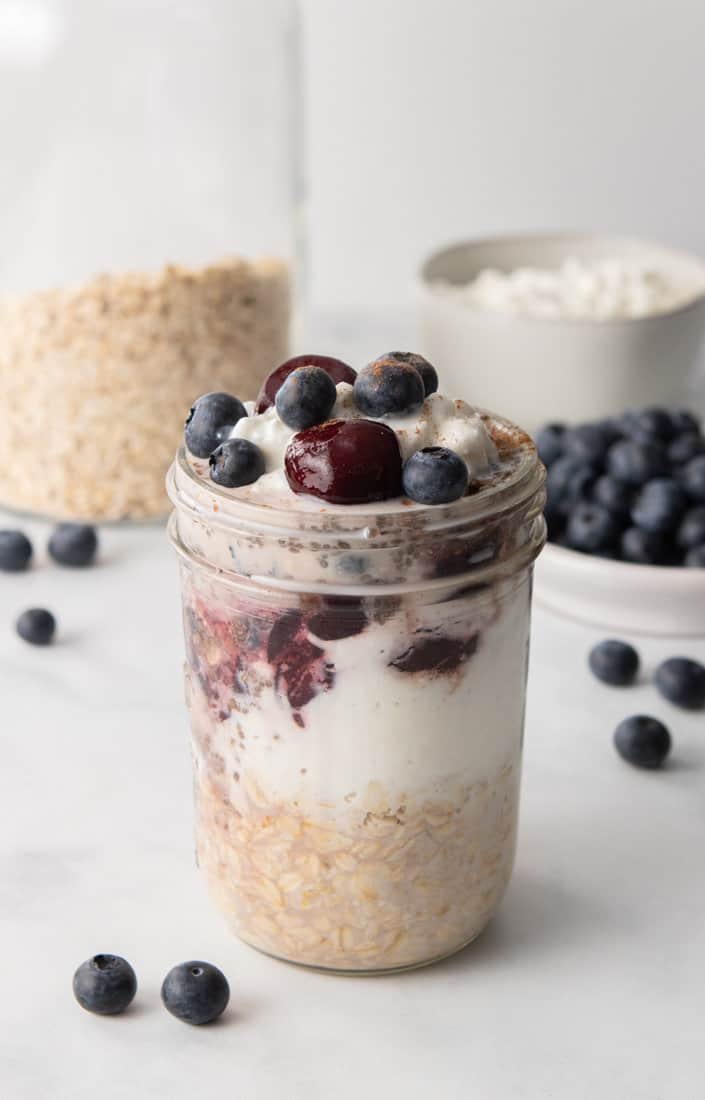

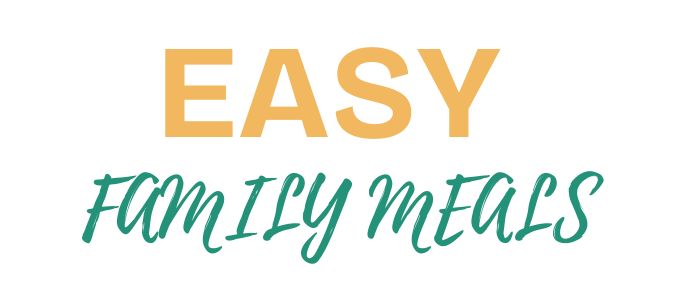
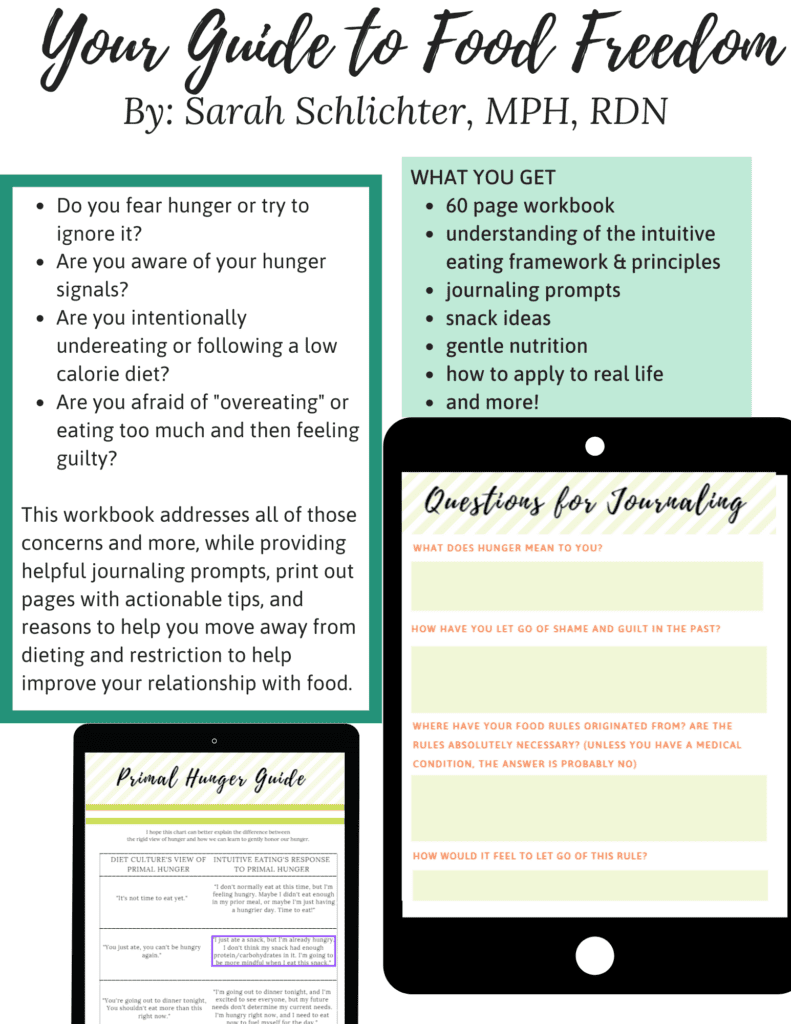

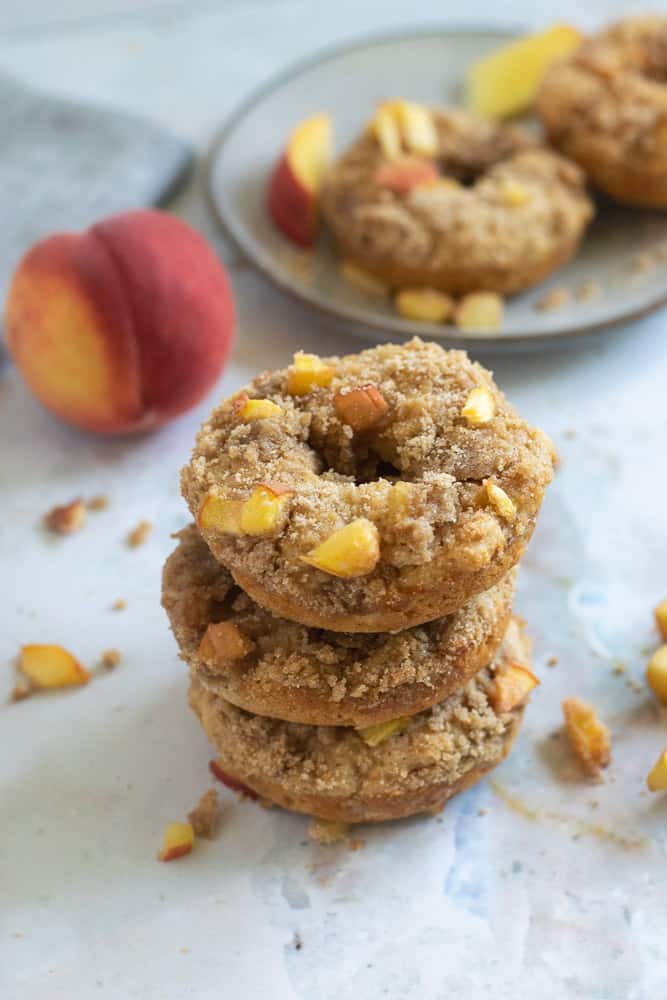


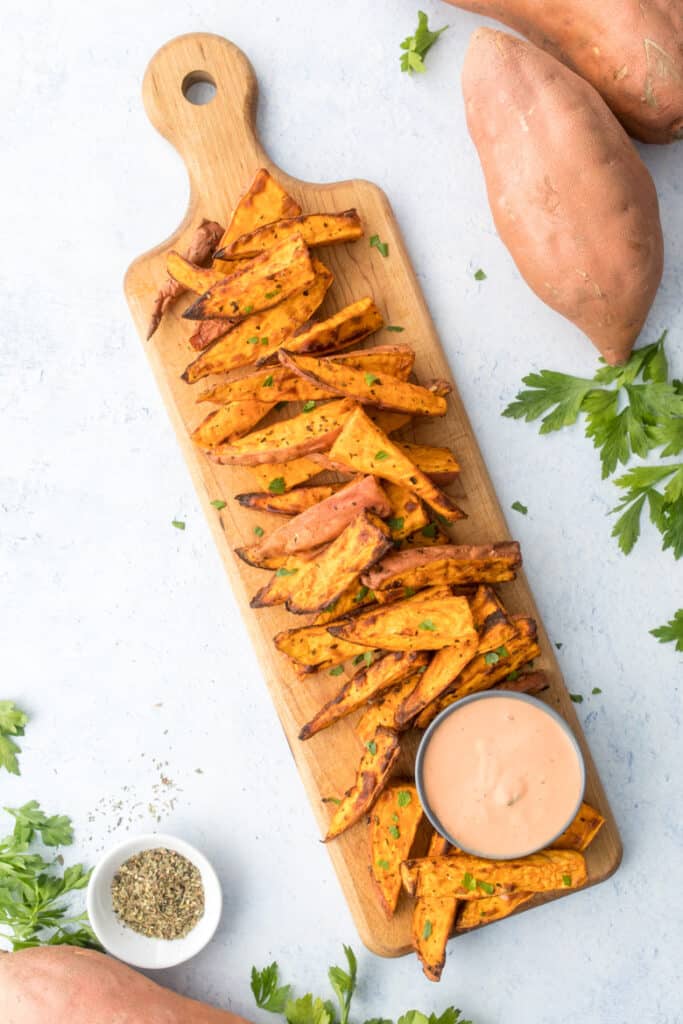
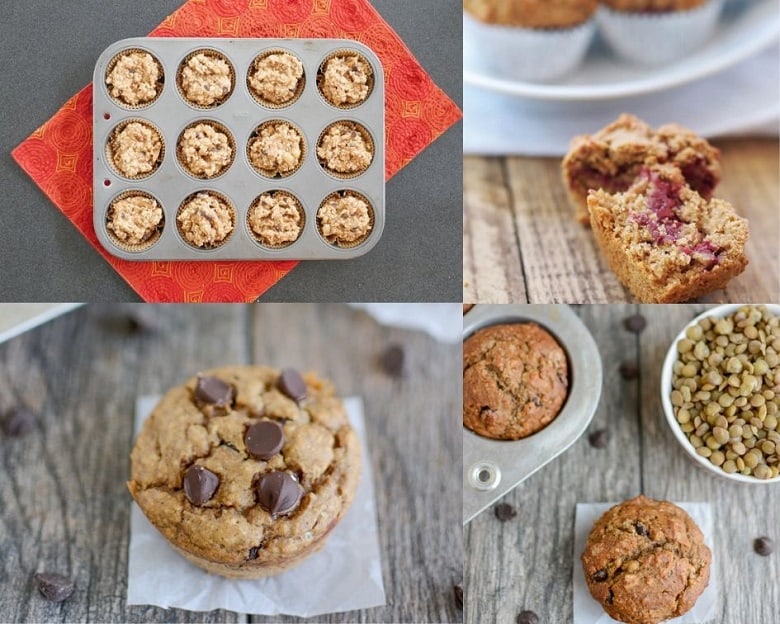
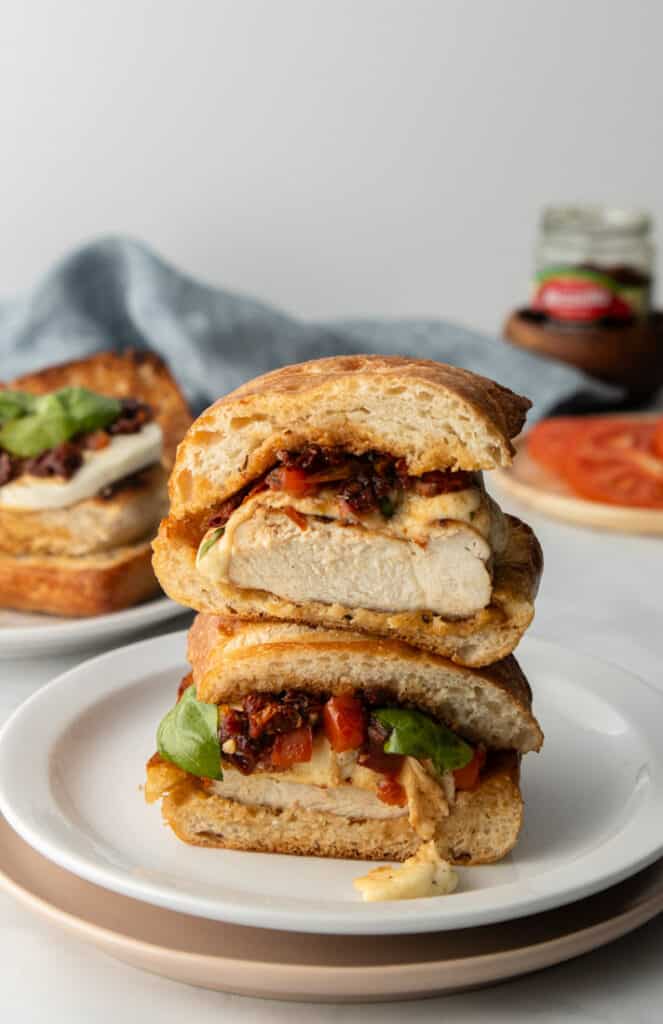
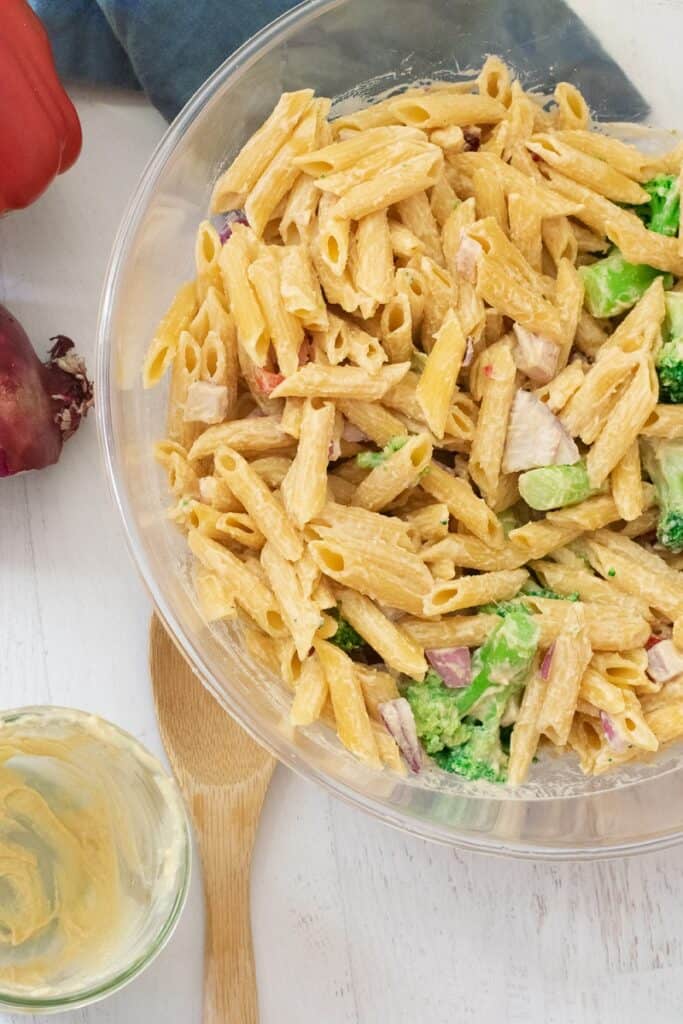

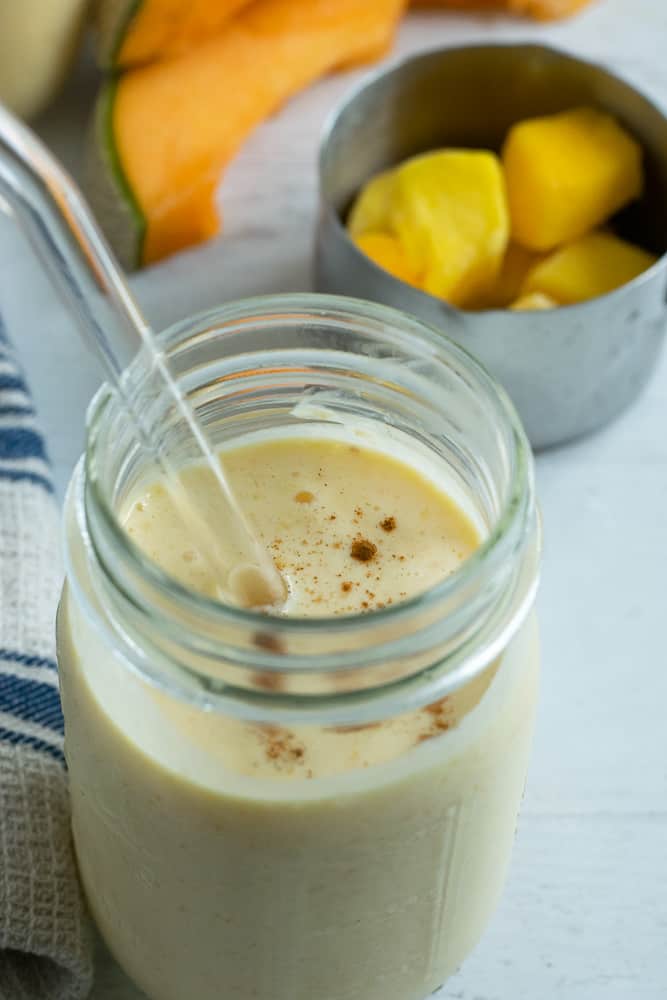
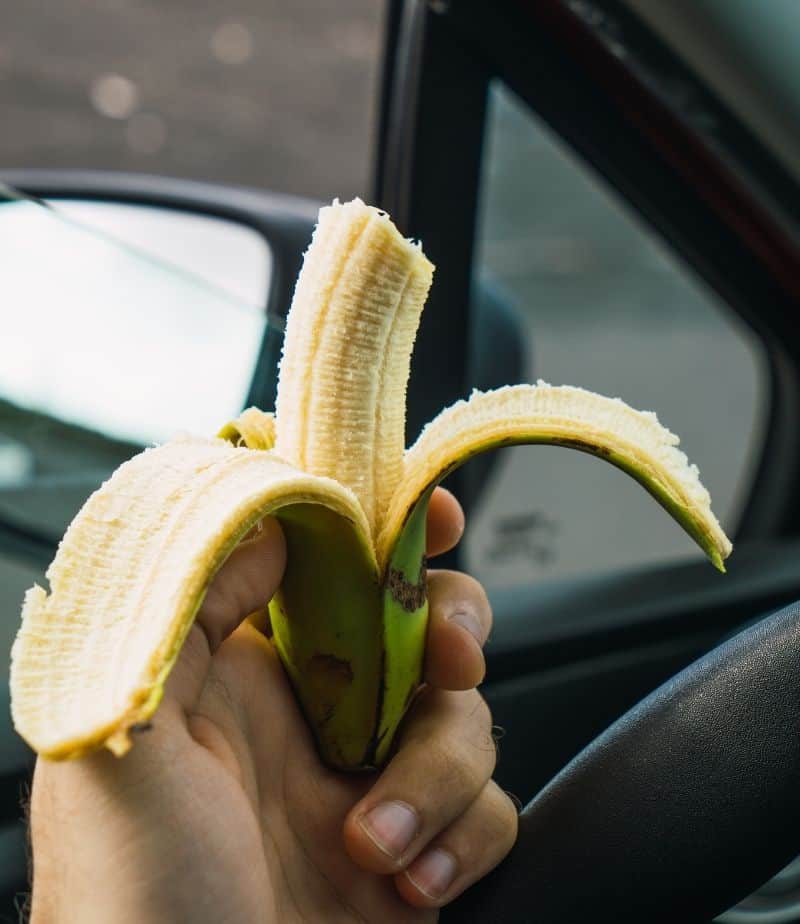
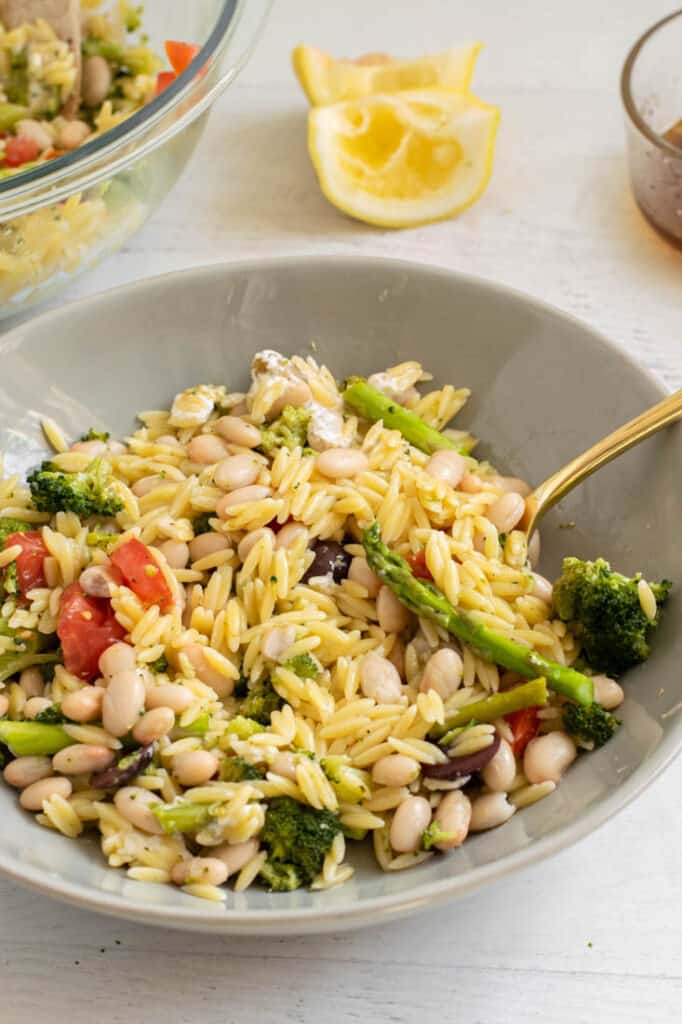
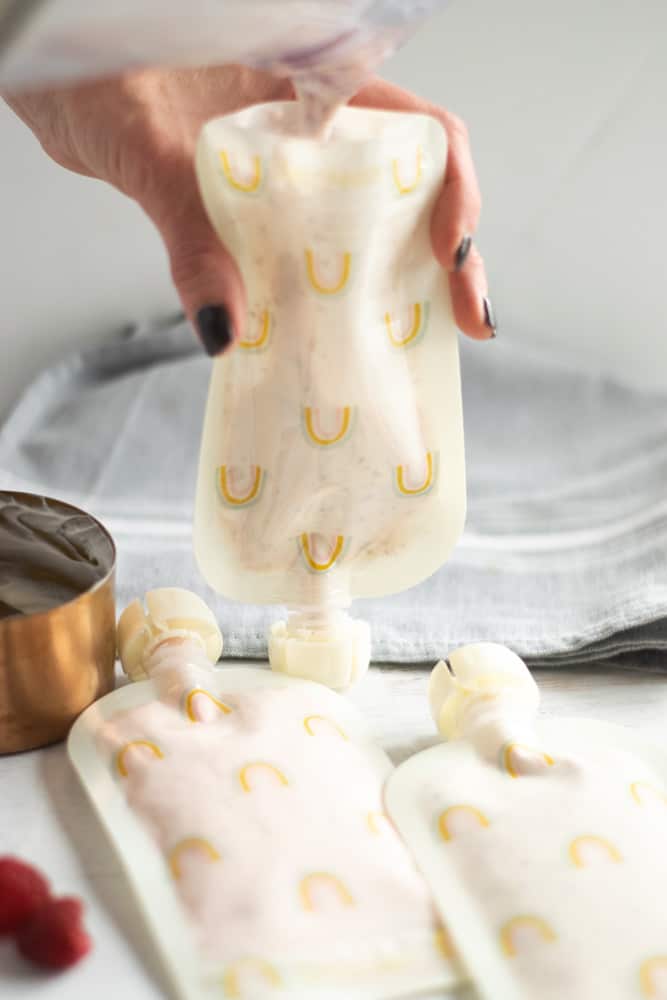
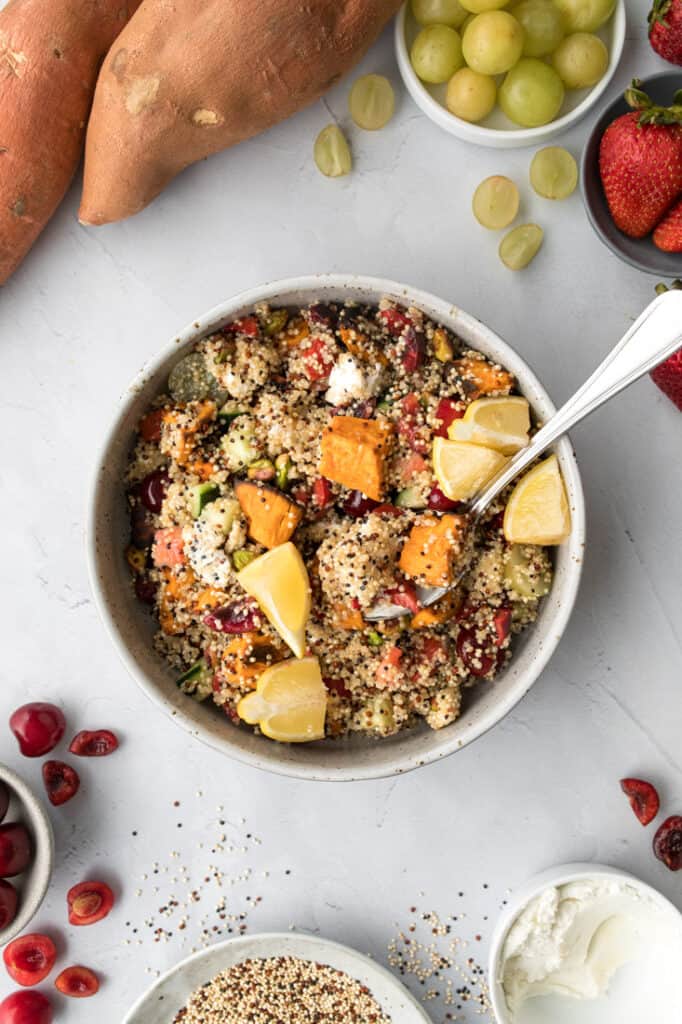

Like This Content?
Support Bucket List Tummy